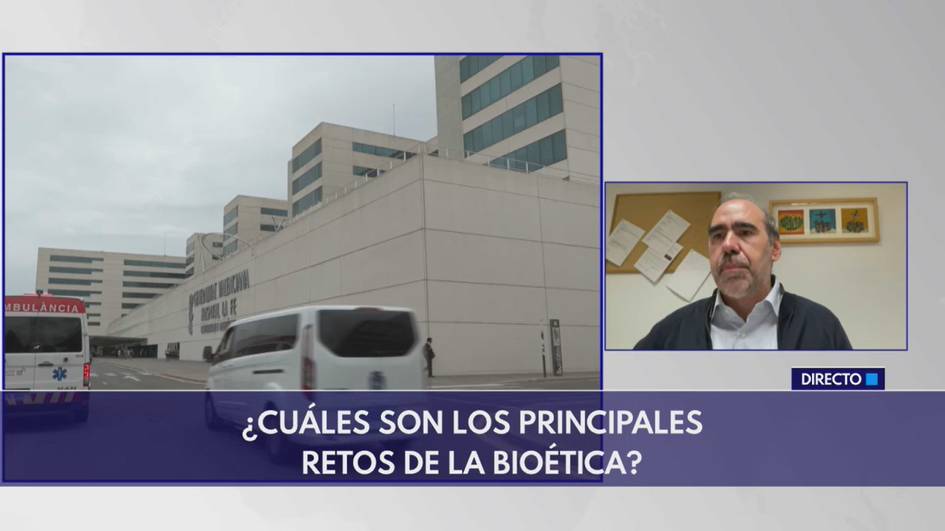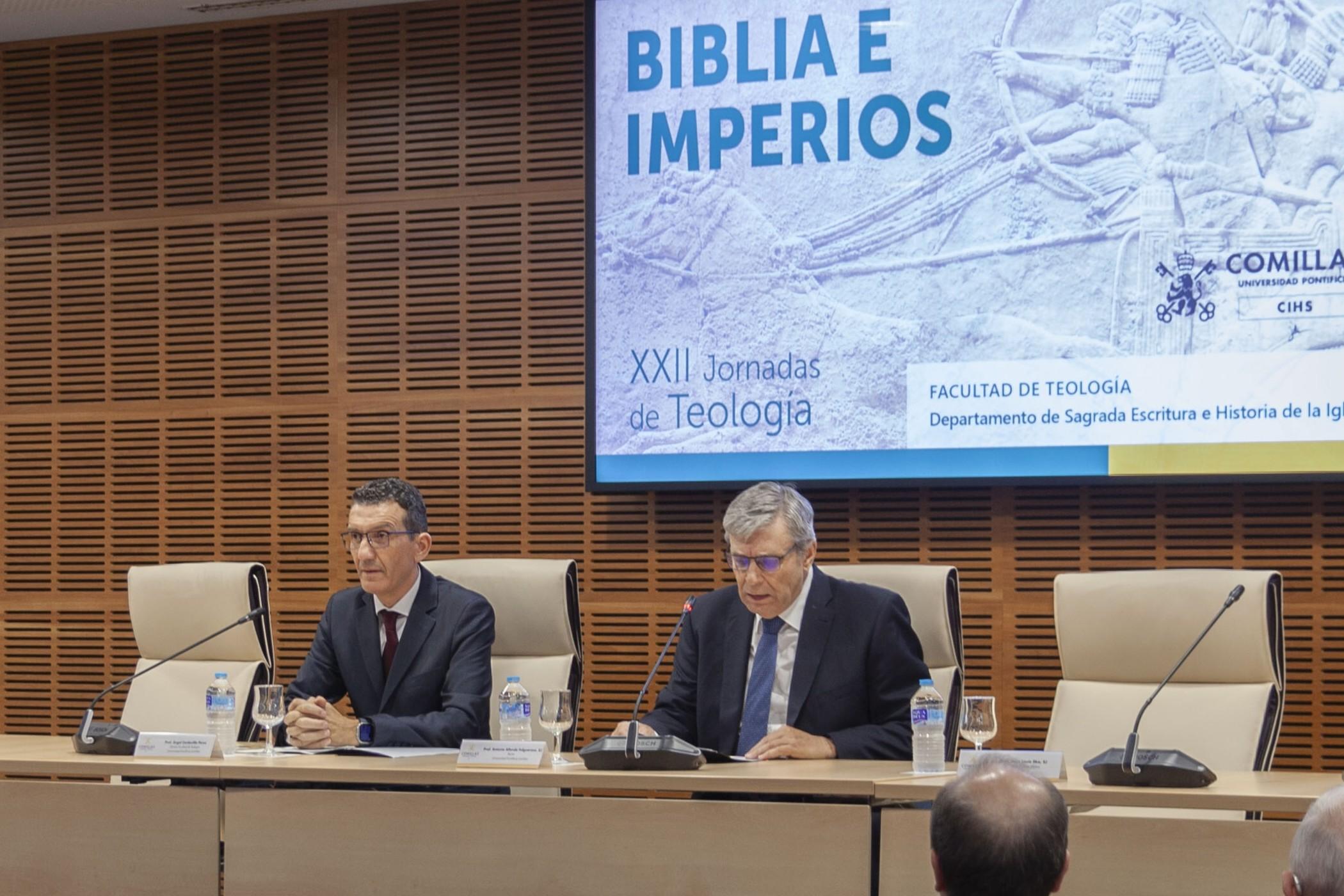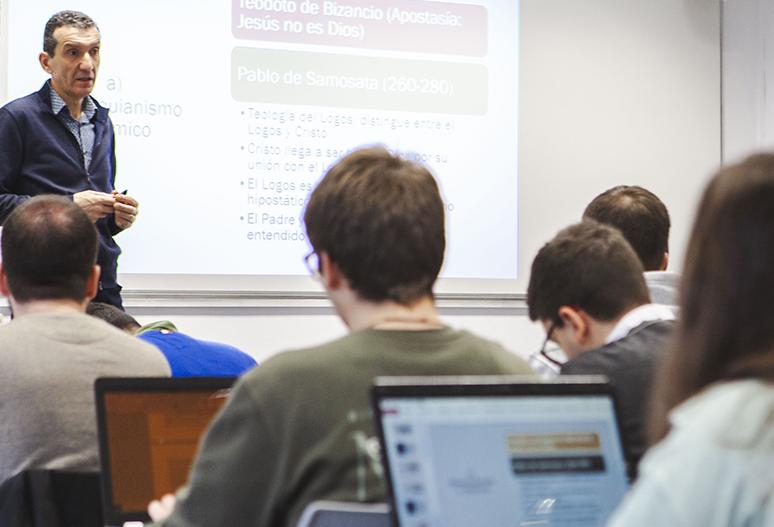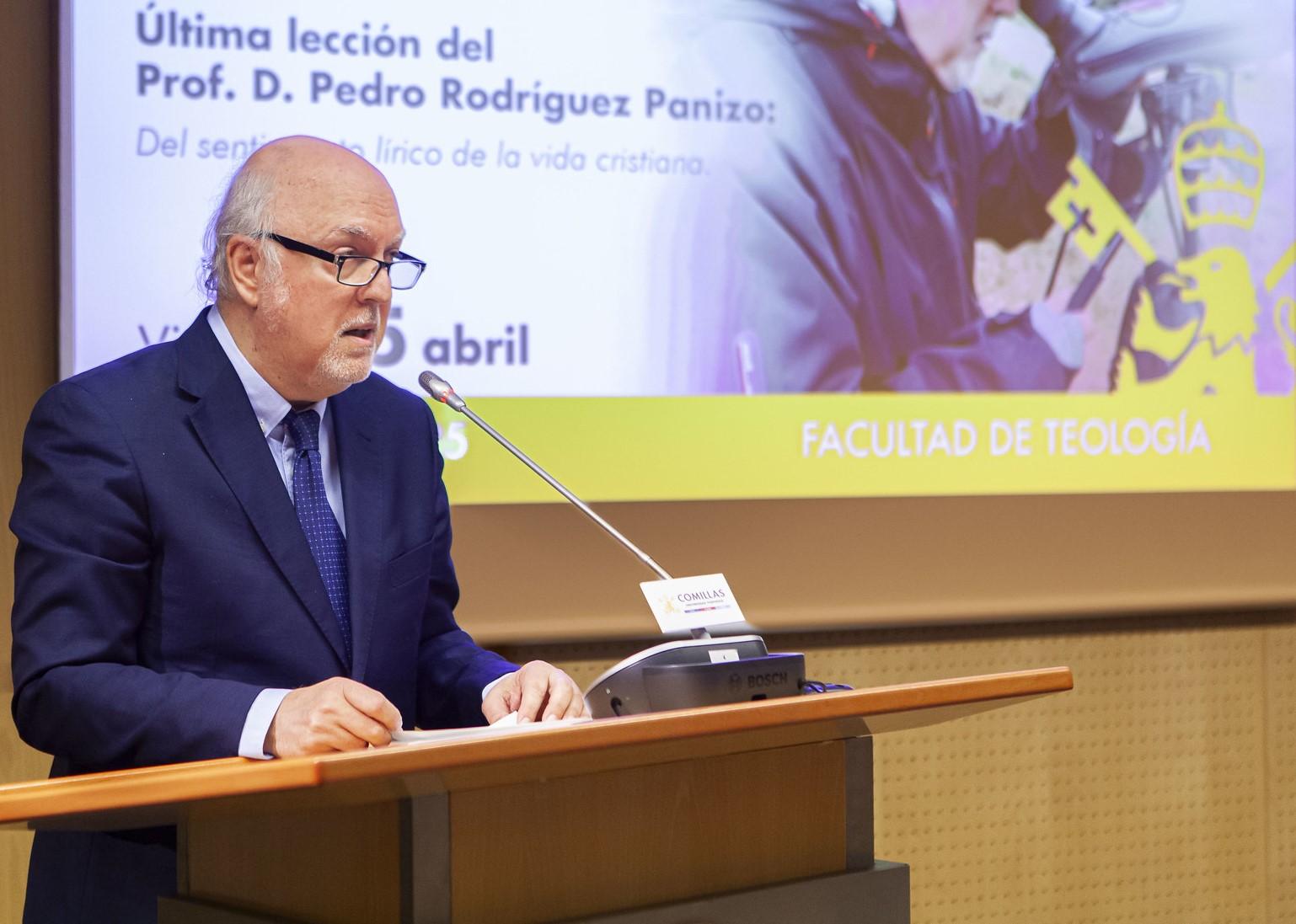Artificial Intelligence, humanisation and justice
Professor Rafael Amo, Director of the Chair of Bioethics, spoke on the programme 'Ecclesia al día' on TRECE TV about the challenges posed by Artificial Intelligence for Bioethics

Professor Rafael Amo, during his speech
10 October 2024
The Professor and Director of the Chair of Bioethics, Rafael Amo, has intervened in the television programme 'Ecclesia al día' of TRECE TV on 8 October 2024.
His intervention dealt with the use of Artificial Intelligence (AI) in medicine, with the bioethical challenges it entails.
In addition, within the framework of the recent 1st San Juan de Dios Spain Bioethics Congress, entitled "Ethics, Humanisation and Hospitality", in which Professor Amo took part, Professor Amo commented that AI is coming to medicine for its correct interpretation.
He stated that technology is an intentional system and depends on the intention of the user. For this reason, Professor Amo is committed to its humanising power, proposing a correct feeding and training of applications, so that AI does not commit biases that limit justice and fairness.
"The fundamental factor for AI to be fair is that it comes fairly fed and trained," he said. In this training, the role of the researcher is essential, especially at the time of diagnosis. Correct feeding, Amo pointed out, is the supervision of the AI, not the replacement of the health expert, which would mean dehumanisation.
Next, Rafael Amo outlined the main challenges that Bioethics is currently facing. After the problem of data feeding, he commented that Bioethics must clarify the relationship between patient and AI, since the patient is not only a source of data, but a basis to be protected from the point of view of equity and justice, where sharing is fundamental to help. Thus, Amo concluded that the big challenge is that of fairness, where AI must be educated so that it does not discard anyone.
In addition, AI can help clarify the bioethical questions that other disciplines such as genetics have produced. AI cannot create human nature, but it can master it through correct application. That is where the question of diseases, cures, etc. comes in. Professor Amo concluded by affirming that the great bioethical criterion will always be to see "the person always as an end and never as a means".
The full programme can be seen by clicking here (minutes 35:20 - 47:12).
Professor Rafael Amo Usanos holds a PhD in Theology and Philosophy, of the Department of Moral Theology and Praxis of Christian Life, Director of the Chair of Bioethics at Comillas Pontifical University and a recognised expert in Bioethics. His publications include Artificial Intelligence and Bioethics ( 2023, Comillas. ISBN: 978-84-8468-988-1).
All the latest news from the Faculty of Theology can be found on the website, in the monthly newsletter and on the social network X (formerly Twitter).
You may also be interested in

The Faculty of Theology reflected on power, faith and resistance in biblical traditions, in the framework of the Jubilee of Hope

The Faculty of Theology (Comillas CIHS) is ranked 34th in the world and is the best in the Spanish language, according to the latest ranking by subject

The lecturer of the Faculty of Theology gave his farewell speech, before his imminent retirement, appealing to the lyricism of the Christian life
